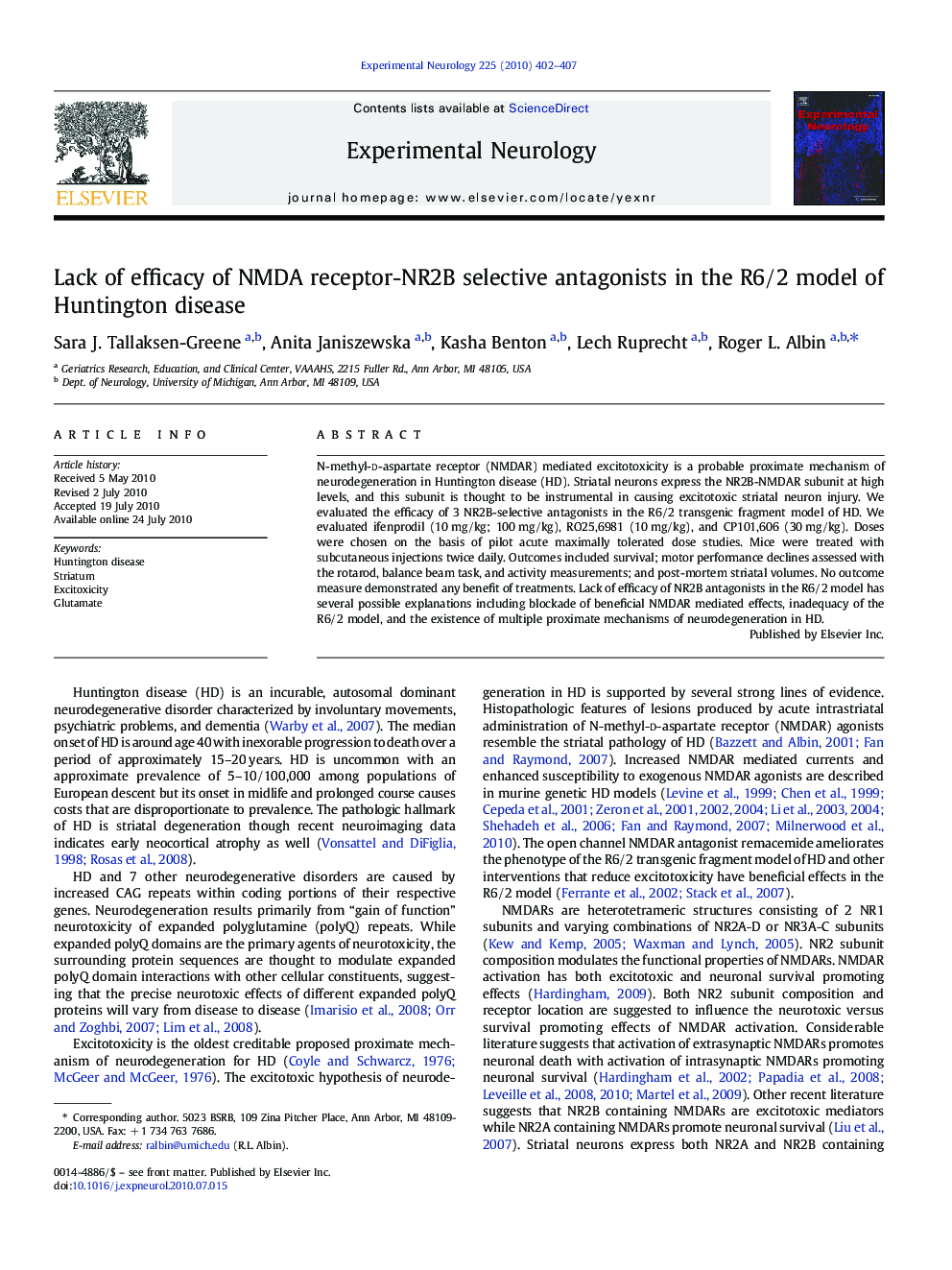| Article ID | Journal | Published Year | Pages | File Type |
|---|---|---|---|---|
| 3055999 | Experimental Neurology | 2010 | 6 Pages |
N-methyl-d-aspartate receptor (NMDAR) mediated excitotoxicity is a probable proximate mechanism of neurodegeneration in Huntington disease (HD). Striatal neurons express the NR2B-NMDAR subunit at high levels, and this subunit is thought to be instrumental in causing excitotoxic striatal neuron injury. We evaluated the efficacy of 3 NR2B-selective antagonists in the R6/2 transgenic fragment model of HD. We evaluated ifenprodil (10 mg/kg; 100 mg/kg), RO25,6981 (10 mg/kg), and CP101,606 (30 mg/kg). Doses were chosen on the basis of pilot acute maximally tolerated dose studies. Mice were treated with subcutaneous injections twice daily. Outcomes included survival; motor performance declines assessed with the rotarod, balance beam task, and activity measurements; and post-mortem striatal volumes. No outcome measure demonstrated any benefit of treatments. Lack of efficacy of NR2B antagonists in the R6/2 model has several possible explanations including blockade of beneficial NMDAR mediated effects, inadequacy of the R6/2 model, and the existence of multiple proximate mechanisms of neurodegeneration in HD.
Research Highlights►Evaluated 3 selective NMDAR-NR2B antagonists in the R6/2 model of Huntington disease. ►Endpoints included mortality, decline in motor function, and striatal volume. ►No effect of treatment on any endpoint. ►Negative outcome might reflect blockade of pro-survival effects of NMDAR activation.
